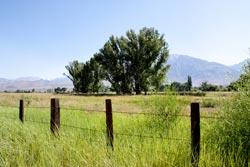Foreign nationals will no longer be able to own land in South Africa once government's land policy is finalised and passed into law, Land Reform Minister Gugile Nkwinti said on Tuesday.

"All people who are foreign nationals will not own land, but will lease land on a long-term basis," he said.
"All people who are foreign nationals will not own land, but will lease land on a long-term basis," he said.
Nkwinti was responding to a question during a "dialogue" with farm workers in the Western Cape town of Paarl.
The question had to do with foreign ownership of farms.
The minister said government had completed an audit of state-owned land, but was still busy with its audit of public and private land.
"Privately-owned land includes land which is owned by foreigners. We are busy auditing all of that land," he said.
"When we've finished that, the policy of government, which will kick in at that point - because at the moment, remember, it's privately-owned land - after we conclude that in Cabinet, and Parliament promulgates the law, it will then say: ‘All people who are foreign nationals will not own land, but will lease land on a long-term basis'."
Nkwinti told his audience the matter was being attended to by government.
Speaking earlier, Trade and Industry Minister Rob Davies said the recently-announced R105 a day wage for farm workers was a minimum wage, and did not mean farmers could not pay more.
He said some farms involved in export production could afford to pay more than this.
Davies described agricultural labour as "an unorganised sector".
"You are not organised in unions," he told around 200 farm workers who had packed into the venue for the event.
"If you get a sufficient number of people enrolled in a trade union, you have the right to invoke provisions of the Labour Relations Act," he said.
Then, noting that many of the people he was addressing were wearing red Fawu or white Bawusa T-shirts, Davies told them: "Now go and negotiate, and get yourself a better wage!"
He said at some rural Western Cape clinics the biggest illness being treated was not HIV/Aids, but malnutrition.
Agriculture Minister Tina Joemat-Pettersson said cheap labour was now a thing of the past.
"Cheap labour is no longer going to be tolerated," she said.
Earlier on Tuesday, a similar dialogue was held with farmers and commercial farming organisations. - Sapa








